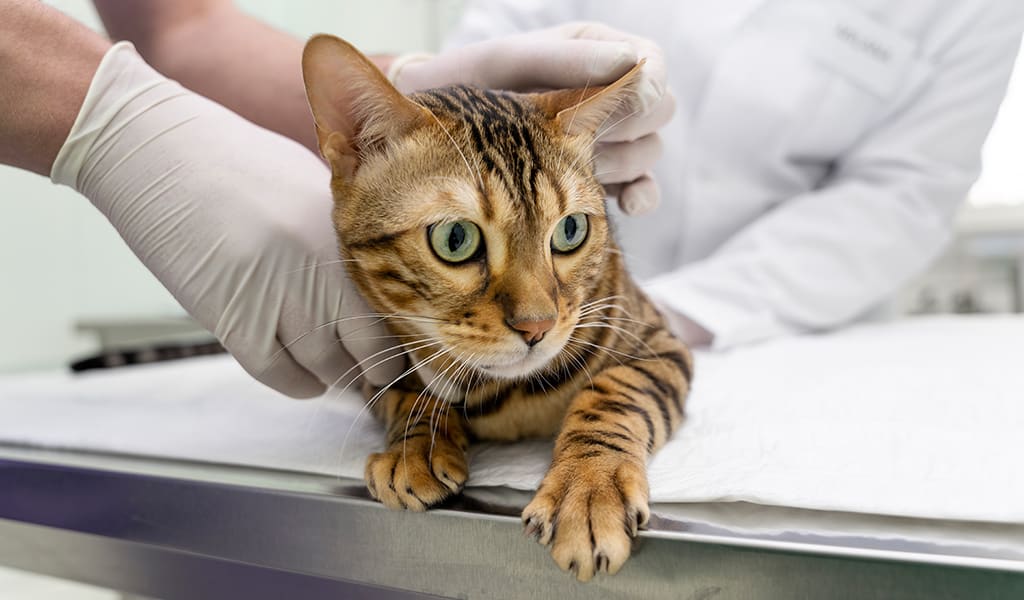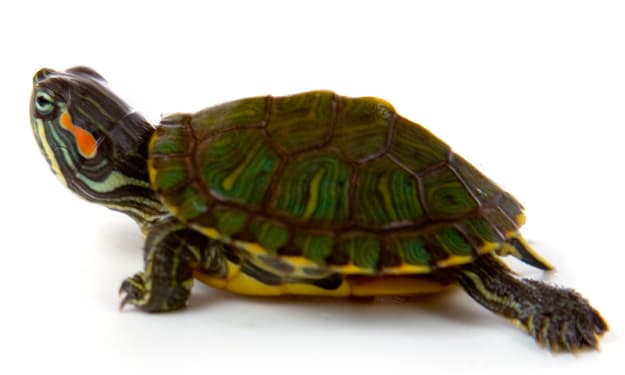Can Cat Vaccines Save Your Furry Friend's Life? Uncovering the Truth!
Vaccines are an essential part of keeping your cat healthy, but what do they do? In this blog, we’ll uncover the truth about cat vaccines and how they can help keep your furry friend safe.

From understanding what vaccines are available to how they work and why they are important, this blog will help you make the best decisions for your cat’s health and wellbeing.
1. Introduction
Introducing your furry friend to the world of vaccines can be a daunting task, but it is a necessary one. Vaccines are designed to protect your cat from deadly diseases that can be easily transmitted. As a responsible pet owner, it is your duty to ensure that your cat is up-to-date on all their vaccinations. Not only does this protect your cat, but it also protects other cats in the community. Vaccines have been proven to save countless lives and prevent the spread of infectious diseases. It is important to note that vaccines are not a one-time deal. Regular boosters are required to maintain your cat's immunity to certain diseases. The initial cost of vaccines may seem steep, but it is a small price to pay for the health and safety of your furry friend. In conclusion, introducing your cat to vaccines is a crucial step in ensuring their well-being. It is a small investment that can save their life and prevent the spread of deadly diseases. Don't wait until it's too late, speak to your veterinarian today about getting your cat vaccinated.
2. What are Cat Vaccines?
Cat vaccines are an essential tool in keeping your furry friend healthy and protected against a range of infectious diseases. These vaccines work by triggering your cat's immune system to produce antibodies that can fight off specific viruses and bacteria. By doing so, cat vaccines can save your cat's life by preventing deadly diseases such as feline leukemia, feline infectious peritonitis, and rabies. It is important to note that not all cats require the same vaccines, and the vaccination schedule may vary depending on factors such as age, lifestyle, and health status. Therefore, it is crucial to consult with your veterinarian to determine the appropriate vaccines for your cat. Some cat owners may be concerned about the safety of vaccines, but the benefits of vaccination far outweigh the risks. Adverse reactions to vaccines are rare, and most cats experience only mild side effects such as lethargy or a slight fever. In conclusion, cat vaccines can indeed save your furry friend's life by protecting them against dangerous diseases says mobile pet shots near me . As a responsible pet owner, it is your duty to ensure that your cat receives the necessary vaccines to live a long and healthy life. Consult with your veterinarian to determine the best vaccine schedule for your cat and give them the protection they deserve.
3. Types of Cat Vaccines and Their Uses
Cat vaccines are essential in protecting our furry friends from various diseases that could potentially be fatal. There are different types of cat vaccines available, each designed to protect against specific diseases. The core vaccines, which are highly recommended by veterinarians, protect against feline panleukopenia, feline calicivirus, feline herpesvirus, and rabies. Non-core vaccines, on the other hand, are only recommended for cats with specific lifestyles or living situations. These vaccines protect against diseases such as feline leukemia virus, feline immunodeficiency virus, and chlamydophila felis. It is important to note that not all cats require the same vaccines, and it is best to consult with a veterinarian to determine which vaccines are necessary for your cat. Vaccines not only protect your cat but also prevent the spread of diseases to other cats in the community. It is crucial to keep your cat up-to-date on their vaccines to ensure they are protected throughout their life. In conclusion, cat vaccines are a crucial aspect of keeping our furry friends healthy and safe. With the different types of vaccines available, it is important to consult with a veterinarian to determine which vaccines are necessary for your cat. Protecting your cat with vaccines not only benefits them but also helps prevent the spread of diseases to other cats in the community. Vaccines can save your cat's life, so don't wait to schedule an appointment with your veterinarian to discuss your cat's vaccination needs says pet shots near me.
4. Benefits of Vaccinating Your Cat
Vaccinating your cat is one of the best things you can do to protect your furry friend's health and well-being. Not only does it prevent your cat from contracting serious and potentially fatal illnesses, but it also helps to prevent the spread of these diseases to other cats in the community. By vaccinating your cat, you're not only protecting your own pet, but you're also contributing to the overall health of the cat population. One of the biggest benefits of vaccinating your cat is that it can save their life. Diseases like feline leukemia, feline distemper, and rabies can all be prevented with the proper vaccinations. These diseases can be extremely serious and even deadly, so it's crucial to protect your cat with the appropriate vaccines. Additionally, vaccinations can help to prevent the need for costly medical treatments down the line, which can save you money in the long run. Not only do vaccinations protect your cat's health, but they also provide peace of mind for you as a pet owner says pet vaccinations near me. Knowing that your cat is protected from serious illnesses can help to alleviate stress and worry. Plus, you'll be doing your part to help prevent the spread of these diseases to other cats in the community. In conclusion, vaccinating your cat is an important step in ensuring their health and well-being. By protecting your cat from serious and potentially fatal illnesses, you're not only saving their life, but you're also contributing to the overall health of the cat population. So, if you haven't already, make sure to talk to your veterinarian about getting your cat vaccinated today.
5. Risks Associated with Vaccination
While vaccines are generally considered safe and effective, there are some risks associated with vaccination that pet owners should be aware of. One of the most common risks is an allergic reaction to the vaccine, which can cause symptoms such as swelling, hives, and difficulty breathing. In rare cases, an allergic reaction can be life-threatening. Another potential risk is the development of a vaccine-associated sarcoma, a type of cancer that can occur at the site of vaccine injection says animal hospital Jacksonville FL. However, it's important to note that the risk of developing a vaccine-associated sarcoma is extremely low, and the benefits of vaccination far outweigh the risks. It's also worth noting that the vast majority of pets experience no adverse reactions to vaccines. Ultimately, the decision to vaccinate your cat should be made in consultation with your veterinarian, who can help you weigh the risks and benefits and make an informed decision. While there are risks associated with vaccination, the benefits of protecting your furry friend from potentially life-threatening diseases are clear. By vaccinating your cat, you can help ensure a long and healthy life for your beloved pet.
6. How to Make an Informed Decision About Vaccinating Your Cat
When it comes to vaccinating your cat, it can be overwhelming to know where to start. However, making an informed decision is crucial for the health and well-being of your furry friend. Firstly, it is important to understand the benefits of vaccinating your cat. Vaccines can protect against a range of diseases, some of which can be fatal. Secondly, it is essential to consult with your veterinarian to determine which vaccines are necessary for your cat based on their age, lifestyle, and health status. Your vet can also provide information on the risks and side effects of each vaccine says arlingtonanimalhospital. Additionally, it is important to consider the potential risks of not vaccinating your cat, such as the spread of disease to other animals and humans. Ultimately, the decision to vaccinate your cat should be based on a thorough understanding of the benefits and risks, and consultation with a trusted veterinarian. By taking these steps, you can ensure that your furry friend is protected and healthy for years to come.
7. Conclusion
In conclusion, cat vaccines can indeed save your furry friend's life. Vaccines are an essential aspect of preventative healthcare for cats, as they protect against deadly diseases and illnesses. By vaccinating your cat, you are not only ensuring their safety but also the safety of other cats they may come into contact with. Vaccines have been proven to be safe and effective, and the benefits far outweigh any potential risks. It is important to note that vaccines are not a one-time fix and require regular boosters to maintain their effectiveness says animal hospital . As responsible pet owners, it is our duty to provide our cats with the best possible care, and vaccination is an integral part of that care. In conclusion, vaccinating your cat is a small price to pay for the peace of mind that comes with knowing you are doing everything in your power to keep your furry friend healthy and safe. Don't wait until it's too late, vaccinate your cat today!






Comments
There are no comments for this story
Be the first to respond and start the conversation.